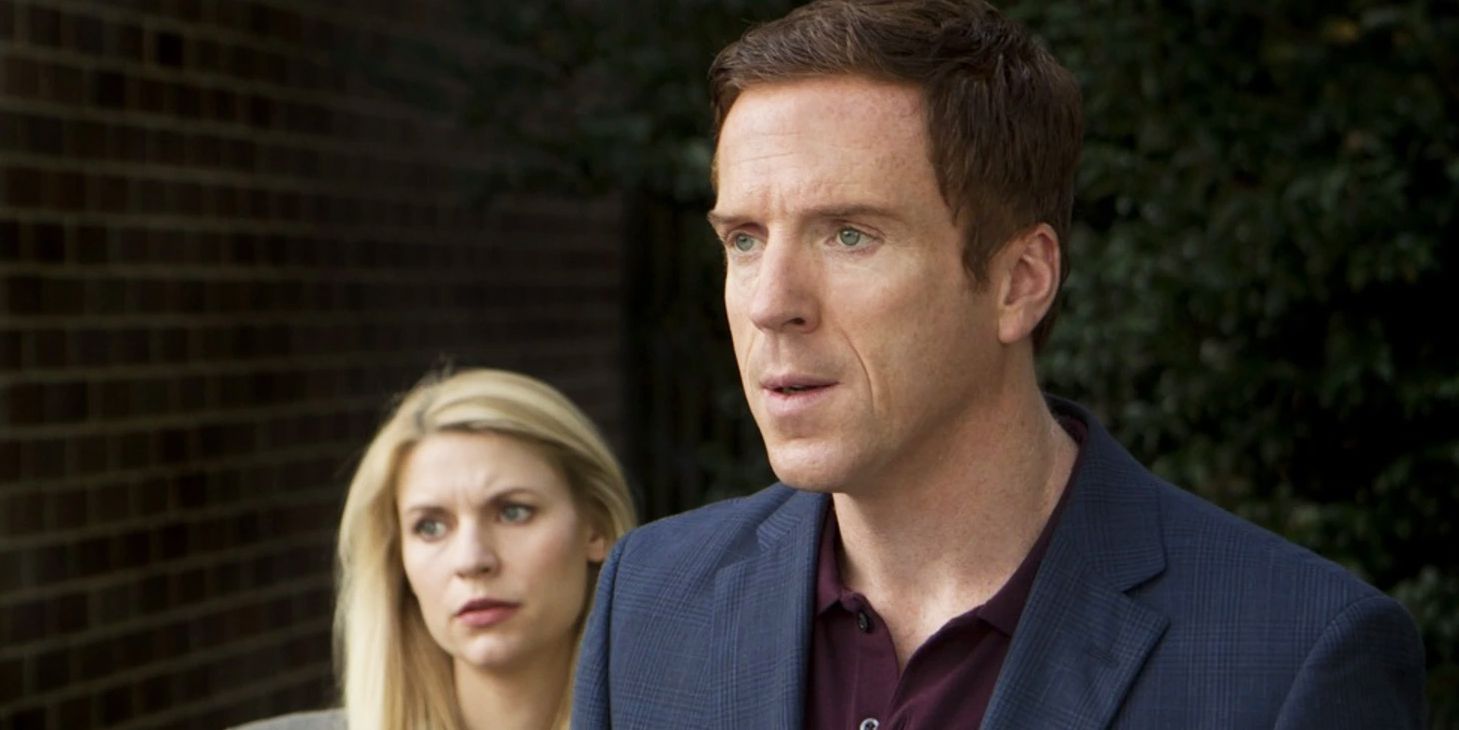’Homeland’s Most Thrilling Storyline Was Never About the Espionage or Terrorists

Few shows have broken into the public zeitgeist quite like Homeland, which literalized many of the fears about terrorism and domestic crises that had been simmering within America in the aftermath of 9/11. Although the series was loosely inspired by the Israeli program Prisoners of War, Homeland so closely mirrored developing events within American history that it became downright eerie. While the insights into the way that America’s network of espionage agencies and military representatives operated together was insightful, Homeland was at its most gripping when it focused on the domestic lives of its characters. By showing the post-traumatic stress disorder that the former Marine Nicholas Brody (Damian Lewis) faced after being rescued as a prisoner-of-war, Homeland was able to develop complex conversations about the fractured family unit.
The first season of Homeland brilliantly set up two characters with competing agendas; while Brody has returned home to his wife Jessica (Morena Baccarin) with the intention of being reacclimated into society, the bipolar CIA case officer Carrie Mathison (Claire Danes) begins to work off of a clue that the lionized war hero might actually be a sleeper-cell agent working for al-Qaeda. Lewis said that he “enjoyed the contradiction that someone could return a hero in the nation’s eyes, but possibly not be that person,” and compared the first season to “the first chapter of your novel, that takes you to the next chapter.” Despite the weightiness of the subject material, Lewis described Homeland as “a character piece” that was “about identity on a more intimate, localized level, in regard to family and relationships with your loved ones.
‘Homeland’ Examined the Terror of a Broken Family Unit
Perhaps the most genius aspect of Homeland’s premise was how seemingly opposite Brody and Carrie are at first glance; while Brody is a beloved member of his community whose disappearance sparked much sadness and terror, Carrie has operated like a ghost in the CIA, and has struggled to maintain any personal familial relationships. Brody’s return was an intriguing look at the role that media plays within politics, as it becomes within the nation’s best interest to present him as an all-American family man in order to prove that the military is able to withstand torture and danger from rival nations.
In actuality, Brody is so completely shaped by his captivity that he becomes a shadow of the man he once was, making it harder for him to reconnect with his wife. Although Jessica could have easily been a stock character who had no identity outside of her relationship with Brody, Homeland gave Baccarin the freedom to examine her unappealing choice; while Jessica doesn’t want to contribute to the feelings of isolation that her husband has felt, she recognizes that Brody’s presence has had a negative effect on their children, Dana (Morgan Saylor) and Chris (Jackson Pace).
Lewis said that he “was intrigued by the fact that it wanted to tell a broader story as well,” as Homeland was able to examine the odd peculiarities between Carrie and Brody. Both Carrie and Brody are considered liabilities because of their struggles with mental health, despite the undeniable service that they have done on behalf of their nation. The presentation of Carrie as a character with a mood disorder was groundbreaking for television at the time, as the series worked to sympathize with the challenges she faced without stigmatizing her. Similarly, the show weaved in Brody’s emotional susceptibility into his role as a double agent, and examined how a character in his position would be susceptible to influence within his fragile state. Although Homeland became renowned for its twists and turns, they were all grounded in character and theme.
Brody Changed the Direction of ‘Homeland’
Even though Claire was the definitive protagonist of Homeland throughout its eight seasons, Brody set a precedent for a different type of lead character on a drama show because of the unique challenges he faced. Despite still being under the influence of the terrorists that held him captive, Brody still struggles with the standard issues that many fathers do, as he wants to set an example for his children without disrupting the normalcy of their lives. Even if his behavior grew increasingly erratic as he came to question his own actions, the feud he began with Jessica after realizing that she’d begun a relationship with his friend, Mike Faber (Diego Klattenhoff) is the rare case in which a television love triangle worked.
The show’s Season 1 finale, “Marine One,” is considered to be one of its best episodes because it merged Brody’s personal development with a gripping threat that forced Carrie to go rogue to protect her nation; although Brody’s debate on whether or not to detonate a suicide vest would obviously have significant political ramifications, it is even more compelling because it will determine whether or not his children grow up without a father.
Homeland isn’t exactly a “one-season wonder,” but it did struggle to have the same all-consuming hold over its audiences in the aftermath of its first run of episodes. Later seasons of Homeland were at their most successful when applying the same degree of analysis to other characters, as Carrie ironically became a figure not unlike Brody when she became an increasing liability for the CIA. Although the storyline involving Brody’s daughter in the second season is generally regarded as being one of the weakest aspects of Homeland, seeing him face his fate in the third season both marked an effective conclusion to a legendary television character and transitioned the show into a different version of itself as it focused on more international espionage moving forward.
Even though Homeland gained press because of its proximity to global news stories, the show succeeded because it was not a work of reactionary pulp. The hardest thing for a show with morally dubious characters to do is to make them all feel human, and Homeland’s ability to present a three-dimensional version of Brody is what solidified it as one of television’s modern marvels.

















